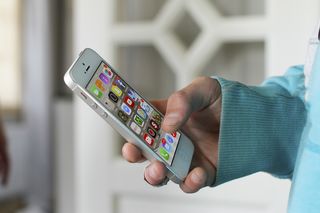Health
There’s an App for That—But Is It the Right One?
Learning to ask the right questions to find the right apps.
Posted March 27, 2020
This post was co-authored by Sarah Lagan, B.S., member of the Division of Digital Psychiatry at Beth Israel Deaconess Medical Center/Harvard Medical School.
With millions around the world self-quarantining in their homes, businesses shuttered, and the routine of daily life fragmented, technology is today playing an increasingly vital role in maintaining mental health. Already in the United States, restrictions on telehealth have been relaxed to allow continuation of mental health care remotely. Interest in mental health apps is also on the rise, with some popular health apps even waiving fees for use. The estimated 10,000 available mental health apps boast a diverse range of features, from mindfulness to mood tracking to online cognitive behavioral therapy (CBT) and peer support. These apps can offer help, activities, and support networks especially useful in the current situation created by COVID-19. But these apps also carry with them significant risks.

The majority of apps for mental health are self-categorized as “Health & Fitness” tools, not medical devices, and are thus not subject to strict government or federal health regulations that protect patient privacy. As a result, there is often no guarantee that an app will store your data securely. In fact, a study in 2018 found that 80% of mobile health apps shared health-related data with third parties, an especially concerning figure for mental health apps that may collect sensitive information about a user. A 2019 study from our team showed that even popular depression and smoking cessation apps were not transparent with who they shared user data with. Furthermore, without oversight, many mental health apps often make exaggerated claims that are not evidence-based. This misinformation can have dire consequences: one review of apps for depression and suicide prevention revealed that inaccurate or nonexistent suicide hotline numbers were provided by apps downloaded more than two million times. Given these risks, how do you find an app that is safe, usable, and clinically relevant? The need for a standard beyond app store star ratings is clear.
Working with the American Psychiatric Association, our team has developed a framework for the evaluation of health apps. This link offers more details and several video tutorials. You can dive into the details in this paper in Lancet Digital Health, too. The framework involves five key considerations: accessibility, privacy, and security, clinical foundation, ease of use and engagement, and data sharing capacity. Our latest efforts have focused on operationalizing the questions that make up the APA framework to inform an online database of mental health apps, ultimately giving users the tools they need to make an informed choice around app use. To learn more about our efforts in app evaluation and how you can make more informed choices yourself when picking an app, tune into our free webinar at 4 p.m. ET on March 31.


